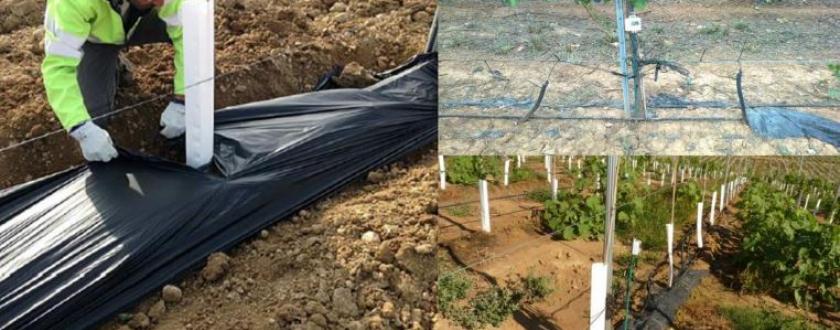MEDACC. Adapting the Mediterranean to Climate Change
Description of the case study
MEDACC is a European LIFE project which tests innovative solutions geared towards adapting Mediterranean agroforestry and urban systems to the impacts of climate change. It contributes to the design and development of adaptation strategies and policies being implemented regionally and nationally in the Euro-Mediterranean area.
In Catalonia, the project has been a highly valuable tool relative to implementation of the Catalan Climate Change Strategy (ESCACC 2013-2020). In that regard, a series of experimental adaptation measures in the agriculture, forest management and water management sectors have been launched after being designed and evaluated in a process involving the participation of various local stakeholders.
The main goal of the MEDACC project is to quantify how adaptation can reduce the vulnerability of natural systems and human activity to climate change, as well as the economic and environmental costs associated with adopting these adaptation measures or not.
The project will be confined to three representative river basins in Catalonia—la Muga, el Ter and el Segre—with the objective of applying the results and methodology to designing similar experiences throughout the Mediterranean area.
A series of adaptation measures will be implemented in the agriculture, forest management and water management sectors to meet the following objectives:
- Understand climate trends, land use, forests and water availability over recent decades in the three river basins analysed.
- Estimate the impacts of climate change and of overall change on the water and agroforestry systems in the three basins in 2050.
- Evaluate the level of adaptation of the three basins to the impacts of climate change.
- Identify which economic areas, systems and sectors are most sensitive to climate change.
- Participative design of pilot adaptation measures in the agriculture, forestry and water management sectors.
- Evaluate the efficiency of the pilot adaptation measures.
- Put together a climate change adaptation action plan for the three basins which evaluates previous adaptation measures and proposes and evaluates new measures.
- Capture traditional knowledge from key stakeholders in each of the sectors analysed by creating a network of local representatives.
- Use dissemination and communication to raise awareness and build capacity among local, comarcal and national representatives.
The project is being implemented across various pilot sites:
- Agricultural sites: corn pilot projects in Pla de Torroella (Girona), in the lower course of the Ter river basin (1.53 ha); apple tree irrigation in the Baix Ter zone and on the coastal plains of Muga; trial use of mulch on experimental sites in Raimat (Lleida) (3,200 ha); altitude trial on experimental sites on Finca San Miquel (Lleida) (124 ha).
- Forestry sites: holm oak forest in the lower region of the Eastern Pyrenees (l’Albera Special Protection Area, Girona); Scots pine forest in the Parque del Castillo de Montesquiu; two European black pine forests in the Solsonès region (Llobera and Madrona).
There have been two meetings of the working groups for each basin involved in the project and a series of demonstration agriculture and forestry actions on pilot sites in all three basins.
Agricultural demonstration actions:
- Monitoring the economic and technical viability of drip irrigation systems for corn (Muga and Ter).
- Implementation of two irrigation systems to enable water saving without reducing agricultural production of corn and apples (Muga and Ter).
- Surveys to validate farmer compliance with efficient irrigation recommendations.
- Use of mulching techniques in vineyards as well as trials at altitude (Segre).
Forestry demonstration actions:
- Evaluating the effectiveness of forestry actions to reduce fire risk and encouraging forest growth by reducing competitiveness (Segre).
- Evaluating the effectiveness of different actions to improve tree health and to anticipate drought-induced mortality (Ter).
- Evaluating the effectiveness of actions to reduce fire risk by reducing forest density and favouring mature structures with older trees as well as ceasing the use of combustible material in the stand (Muga).
The following cross-cutting actions are also being carried out:
- Participative assessment of the main climate change impacts and regional vulnerabilities in the three basins.
- Diagnostic exercise to ascertain which adaptation measures have been used previously in the study basins and their effects.
- Drawing up of new adaptation measures and pilot implementation of these.
- Dissemination of the results through different networks and platforms.
Case study developed and implemented as a climate change adaptation measure.
Oficina Catalana de Canbi Climàtic, CREAF, IRTA and IPE-CSIC.
Additional Information
The LIFE MEDACC project is promoted by the Oficina Catalana de Canbi Climàtic, CREAF, IRTA and IPE-CSIC. The project also involves 33 collaborators including research groups, businesses, irrigation associations and bodies which manage protected areas.
Success: working hand in hand with irrigation communities has enabled proper implementation of agricultural actions; the Community of Coastal Plain Water Users in la Muga and the Gavarres Plan 2025 (led by the Consorci de Les Gavarres) have both been constituted during the project's development, and are two examples of consolidation of key stakeholder networks to address climate change in the region (networks in which the project has been an agent of change); these processes just mentioned have also had a positive influence on the project itself.
The total project budget is €2,548,841, of which the EU has contributed €1,266,208 through the LIFE Programme.
An EU LIFE project which also contributes to the objectives of the Catalan Climate Change Strategy (ESCACC 2013-2020).
2013-2018 (5 years - complete)
Reference information
PYRENEAN CLIMATE CHANGE OBSERVATORY
Avenida Nuestra Señora de la Victoria, 8
22.700 - Jaca
Huesca - España
+34 974 36 31 00
info_opcc@ctp.org






